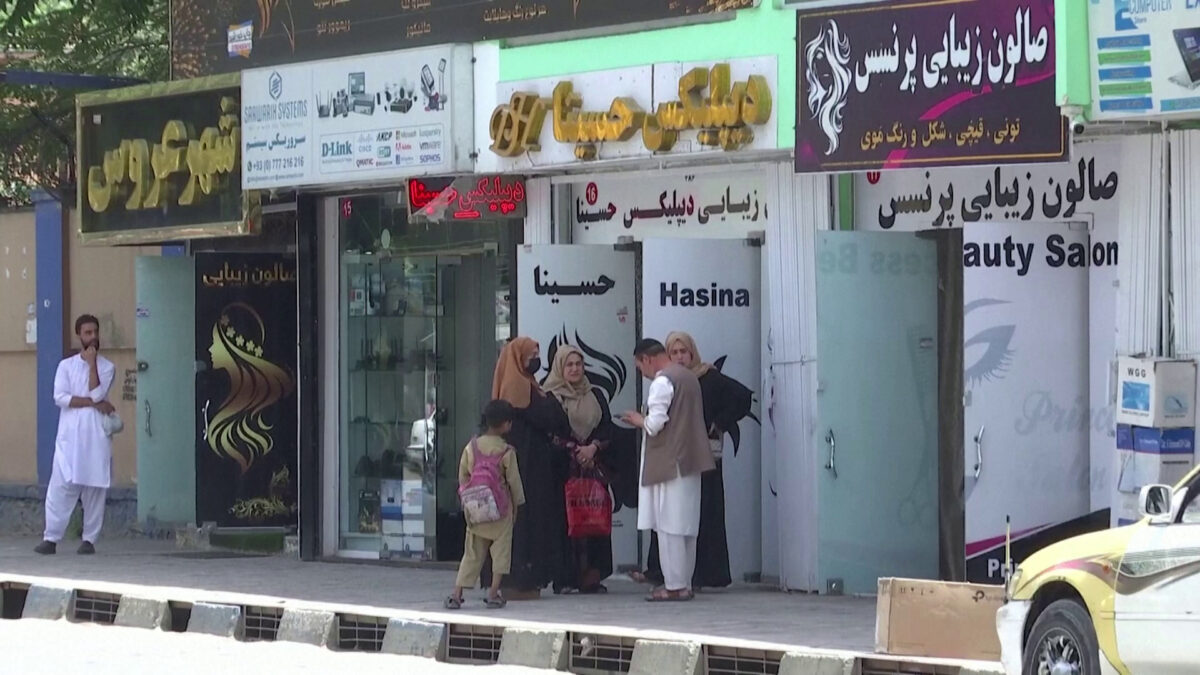The Taliban’s Ministry of Vice and Virtue has justified its decision to close beauty salons for women, citing religious and economic reasons for the move.
Under the Taliban’s directive, beauty salon owners have been instructed to shut down their businesses within a month. This decision has faced criticism from women, activists, and foreign envoys who view it as another step towards restricting women’s freedoms and social lives.
According to Mohammad Sadiq Akaf, the spokesperson for the Taliban’s Ministry of Vice and Virtue, the closure aligns with Sharia law as it deems it unnecessary for one person to put additional hair from another person for beauty. Additionally, the trimming of women’s eyebrows, which occurs in some salons, is considered to be against Sharia.
The United Nations has expressed its intention to engage with the Taliban in order to lift the ban on beauty salons. The deputy spokesperson for the UN secretary-general stated that this ban will negatively impact the lives of women in Afghanistan.
Meanwhile, Rina Amiri, the US Special Representative for Women and Human Rights in Afghanistan, referred to the Taliban’s ban on beauty salons as a step that makes Afghanistan a “cruel and extremely isolated” place in the world. She highlighted the impact on Afghan women, who now feel their already limited freedom is further constrained, considering the order to be a blow to their aspirations for a better life.
“The Taliban ban on beauty parlors removes another vital space for women’s work at a time when they’re struggling to feed their families, eliminates one of the few refuges for women outside the home & further transforms the country into a cruel & extreme outlier in the world,” the US envoy said in a tweet on Wednesday.
Khadima Ahmadi, a hairdresser, expressed her distress over losing her job due to the decision, stating, “I am sad. I am the breadwinner of the house, and I will lose my job with this decision.”
Hamed Obaidi, a researcher at the University of Leipzig in Germany, pointed out that while the United Nations has invited Taliban representatives to an upcoming meeting on Afghanistan, the Taliban have not positively responded to any of the UN’s requests to improve the lives of Afghan women. Furthermore, female UN employees have been prohibited from entering their offices for the past three months.
Removing the order that bans beauty salon activities is the latest request from the United Nations to the Taliban. The response of the Taliban to this UN request remains uncertain, especially as they claim to have been invited to the next UN meeting in September.





